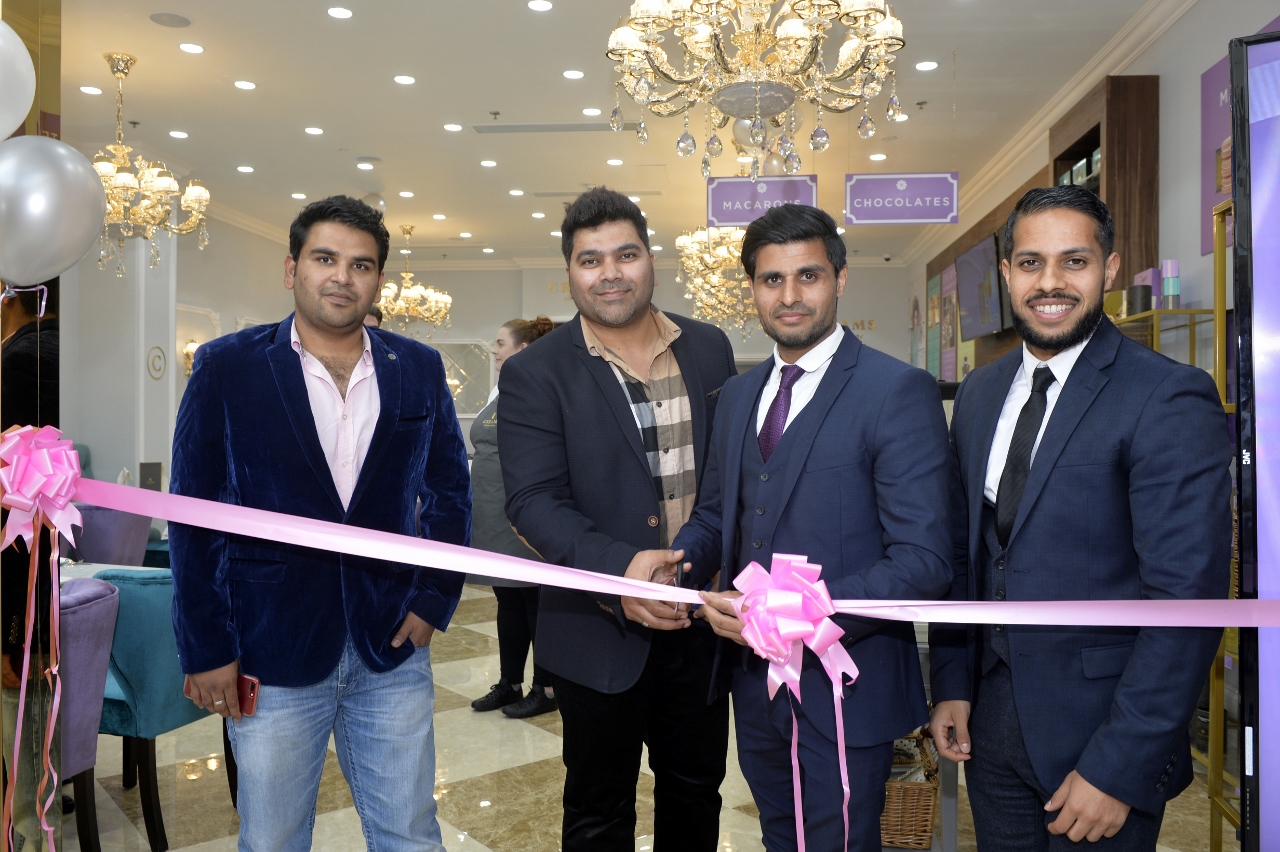
Diwali, the Festival of Light, rolled around once again in all its candlelit glory last weekend as the people of Yorkshire have been swapping gifts, setting off fireworks and sharing food and drink in celebration.
Commemorated every year by Sikhs, Hindus and Jains, the date is one which sees families come together for a day of celebration, and is known as the Festival of Light.

The word ‘Diwali’ translates into ‘row of lights’ and celebrants decorate the indoors and outdoors with beautiful rows of flickering candles, lanterns and electric lights.
Families also light up the night with bonfires and create beautiful flower displays.
Those who attended the Shree Lakshmi Narayan Hindu temple on Leeds Road in Bradford were treated to a play explaining the meaning of Diwali, performed by youngsters.
Ravinder Dharni was amongst those in attendance and praised the young actors for their ‘exceptional performance’.
“The children performed on Saturday in front of over 1,200 people,” he said. “The play portrayed the meaning of Diwali.
“The children who performed were from the summer club and they now attend our drama club that teaches children all our important dates and festivals in our Hindu calendar.”
He added: “The costumes were even imported from India to give it a more realistic feel and the children were incredible and loved every moment. The fireworks were fantastic too.”
 Following the performances, a cheque was also handed over to the temple by members of the summer club for £500.
Following the performances, a cheque was also handed over to the temple by members of the summer club for £500.
Elsewhere in Leeds, The Sikh Temple Gurdwara on Chapeltown Road was a sight to behold, with the exterior decorated in glimmering lights.
Bhupinder Singh Dev, a north Leeds resident, said: “I love celebrating Bhandi Chhor Divas and Diwali with my family by lighting candles at The Sikh Temple Gurdwara, which looks even more beautiful when illuminated at night.”
The Indian festival, which falls on a different date every year but this year was on 30th October, was attended by millions in Sikh and Hindu temples across the UK.
Also known as Deepavali, the event is a celebration of the triumph of light over darkness, and good over evil.
It is an official holiday in Fiji, Guyana, India, Pakistan, Malaysia, Mauritius, Myanmar, Nepal, Singapore, Sri Lanka, Suriname, and Trinidad and Tobago.
The date of the festival is calculated according to the position of the moon. It is based on the Hindu lunar calendar, called Tithi, which calculates events on the moon’s rotation around Earth.

The origin of Diwali in Hinduism
Diwali -the celebration of light – traditionally relates to the legend of Prince Rama and his wife Princess Sita.
According to folklore, the pair were banished from their kingdom for 14 years by Rama’s stepmother.
The couple went to live in the forest not knowing that a feared king with 20 arms and 10 heads lived there.
The king called Ravana kidnapped the princess, but Sita left a trail of her jewellery for Rama to find her. The prince enlisted the help of the monkey king Hanuman to find his beloved wife, with messages sent to all the monkeys in the kingdom and passed on to the bears too.
After a long search Rama found Sita and killed Ravana. The couple travelled back to their homeland and everyone lit up oil lamps to guide them along the way and welcome them home.
Diwali also honours Lakshmi, the goddess of wealth.

The origin of Diwali in Sikhism
For Sikhs, Diwali is particularly important because it celebrates the release from prison of the sixth guru, Guru Hargobind, and 52 other princes with him, in 1619.
The Sikh tradition believes that the Emperor Jahangir had imprisoned Guru Hargobind and 52 princes. The Emperor was asked to release Guru Hargobind which he agreed to do.
However, Guru Hargobind asked that the princes should be realeased, too.
The Emperor agreed, but said only those who could hold onto the tail of his cloak would be allowed to leave the prison, drastically limiting the number of prisoners that could escape.
Luckily, Guru Hargobind was ‘ahead of the game’ and had a cloak made with 52 pieces of string and so each prince was able to hold onto one string and leave prison.
Sikhs celebrated the return of Guru Hargobind by lighting the Golden Temple and this tradition continues today.
Prime Minister Theresa May’s Diwali Message:
“I am delighted to send my very best wishes to everyone celebrating Diwali, a festival which holds such significance for so many people.
“Indeed, right across the world, lights decorate the streets, flowers adorn homes, treats are served and presents exchanged – all marking the triumph of light over darkness.
“But the festival of lights isn’t just relevant for Hindus, Jains, Sikhs and Buddhists. It is relevant to all of us, those of all faiths and none. We can all learn from the example set by Lord Rama, whose return from exile is marked by these 5 holy days.
“That epic story teaches us about building strong families and communities, shunning wrongdoing and evil, and choosing the right path. It promotes the values of service, responsibility, unity and tolerance.
“We need those values more than ever as we build a country that works for everyone – a country where no matter what your faith, your beliefs or your background, you can reach your full potential.
“In Britain’s Indian communities, we can see the good that can be done when people’s talents are unleashed.
“I think of all those running their own businesses, taking risks and working hard so that they can provide for their families and take on staff.
“I think of all those public servants whose hard work and dedication makes our hospitals, schools, police forces and armed forces what they are today.
“I think of the volunteers who give up their own time to look after elderly neighbours or help provide food for families who are less well off. These people are the backbone of our communities.
“And I will be so proud to highlight the achievements of British Indians next month when I make my first official visit to India as Prime Minister at the invitation of Prime Minister Narendra Modi, celebrating the relations between our countries and our shared ambitions for the future.
“As we start the Hindu New Year, it is an occasion for people to reflect on the 12 months that have passed and look to the opportunities ahead.
“So as friends and families come together, in reflection and celebration, let me wish you all a Shubh Deepawali and send my good wishes to Sikhs celebrating Bandi Chhor Diwas too.”














